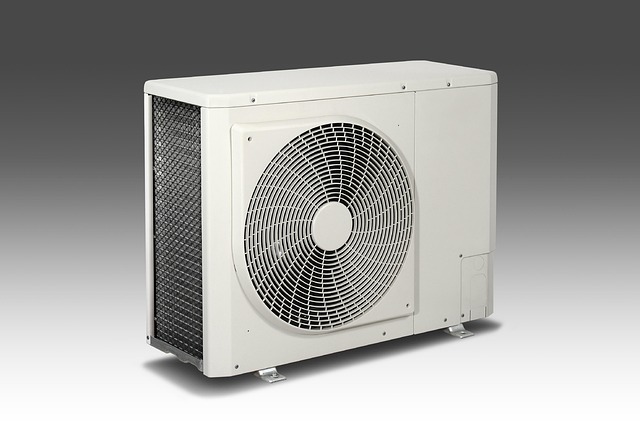Dental Implants: A Comprehensive Guide to Modern Tooth Replacement
Dental implants represent one of the most significant advancements in modern dentistry, offering a permanent solution for missing teeth that closely mimics natural tooth function and appearance. Unlike traditional dentures or bridges, dental implants involve titanium posts surgically embedded into the jawbone, creating a sturdy foundation for replacement teeth. This comprehensive guide explores the various aspects of dental implants, including different types, costs, and considerations for different age groups, particularly seniors who often face unique oral health challenges.

What Are Dental Implants and How Do They Work?
Dental implants function as artificial tooth roots, providing a permanent base for fixed replacement teeth. The implant itself is a titanium post that integrates with your jawbone through a process called osseointegration. This creates a stable foundation that prevents bone loss and maintains facial structure—a significant advantage over traditional tooth replacement methods.
The complete implant system consists of three parts: the implant (titanium post embedded in the jawbone), the abutment (connector placed on top of the implant), and the crown (the visible part that resembles a natural tooth). The entire process typically spans several months, allowing time for proper healing and integration between appointments.
Dental Implant Cost: Understanding the Investment
The cost of dental implants varies significantly based on several factors, including geographical location, dentist expertise, materials used, and additional procedures needed. On average, a single dental implant in the United States costs between $3,000 and $4,500, including the implant, abutment, and crown.
Multiple implants increase the overall cost proportionately, though some economies of scale may apply. For instance, certain preparatory procedures like CT scans or bone grafts might cover multiple implant sites at once. The dentist’s experience level also significantly impacts pricing—specialists with extensive training and successful track records typically charge more than general practitioners.
Insurance coverage for dental implants has improved in recent years, but many plans still classify implants as cosmetic procedures and offer limited coverage. Some plans may cover portions of the procedure, such as the crown or preparatory work, while excluding the implant itself.
How Much Does A Full Set Of Teeth Implants Cost?
Full-mouth dental implants represent a significant investment but provide a permanent solution to total tooth loss. Several approaches exist for full-arch restoration:
Traditional full-mouth implants, where each tooth gets an individual implant, can cost between $40,000 and $55,000 per arch. However, innovative solutions like All-on-4 or All-on-6 implants offer more cost-effective alternatives.
All-on-4 implants use just four strategically placed implants to support an entire arch of teeth, typically costing between $15,000 and $30,000 per arch. All-on-6 follows a similar concept but uses six implants for additional stability, usually priced between $18,000 and $35,000 per arch.
| Full Mouth Restoration Option | Number of Implants | Average Cost Per Arch | Average Total Cost (Both Arches) |
|---|---|---|---|
| Traditional Implants | 8-10 per arch | $40,000-$55,000 | $80,000-$110,000 |
| All-on-4 | 4 per arch | $15,000-$30,000 | $30,000-$60,000 |
| All-on-6 | 6 per arch | $18,000-$35,000 | $36,000-$70,000 |
| Implant-Supported Dentures | 2-6 per arch | $8,000-$20,000 | $16,000-$40,000 |
Prices, rates, or cost estimates mentioned in this article are based on the latest available information but may change over time. Independent research is advised before making financial decisions.
Cost Of Dental Implants For Seniors: Special Considerations
Seniors often face unique challenges when considering dental implants, including fixed incomes, potential bone loss, and existing health conditions. However, many dentists recognize these challenges and offer senior discounts or payment plans specifically designed for older adults.
Medicare typically doesn’t cover dental implants, although Medicare Advantage plans sometimes offer limited dental benefits. Medicaid coverage varies by state, with some programs providing partial coverage for medically necessary implants.
The average cost of dental implants for seniors remains similar to the general population, ranging from $3,000-$4,500 per single implant. However, seniors might need additional preparatory procedures like bone grafts due to age-related bone loss, potentially increasing the overall cost by $1,500-$3,000.
Implants For Elderly Patients: Benefits and Considerations
Dental implants offer several specific benefits for elderly patients that make them worth considering despite the investment:
Improved nutrition is a significant advantage, as implants restore proper chewing function and allow seniors to maintain a varied diet with fruits, vegetables, and proteins that might be difficult to eat with dentures. This nutritional improvement can positively impact overall health and quality of life.
Dental implants also help preserve bone density in the jaw, preventing the “sunken” facial appearance that often accompanies long-term tooth loss and denture use. This preservation of facial structure contributes to maintained self-confidence and psychological well-being.
For elderly patients, special considerations include overall health assessment before proceeding with implant surgery. Conditions like uncontrolled diabetes, certain autoimmune disorders, or ongoing cancer treatments might affect candidacy or healing. Additionally, seniors taking blood thinners or certain osteoporosis medications may require special protocols before and after surgery.
Screwless Dental Implant Cost: A Modern Alternative
Screwless dental implants, also known as ceramic implants or zirconia implants, represent a newer alternative to traditional titanium implants. These implants typically use a friction-fit or cemented approach rather than screws to attach the crown to the implant.
The cost of screwless dental implants generally ranges from $4,000 to $6,000 per implant—somewhat higher than traditional titanium implants. This premium reflects both the newer technology and the aesthetic advantages of ceramic materials, which eliminate the potential for metal showing through the gum line.
Screwless systems may offer particular benefits for patients with metal sensitivities or those seeking the most natural aesthetic result. However, they have less long-term clinical data compared to traditional titanium implants, which have decades of successful use and research behind them.
Dental implants represent a significant investment in oral health and quality of life, with options available for various needs and budgets. Consulting with an implant specialist and exploring financing options can help make this valuable treatment more accessible regardless of age or circumstances.
This article is for informational purposes only and should not be considered medical advice. Please consult a qualified healthcare professional for personalized guidance and treatment.




